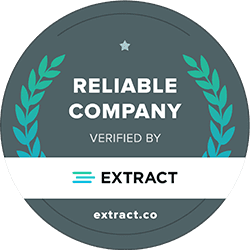Have you ever wondered how brands like Apple, Starbucks, and Netflix manage to achieve worldwide recognition and success? The secret lies in their global strategy.
Are you wondering if your company is ready for further development? Congratulations! This means that your products or services have been appreciated by a wide range of customers.
Now you just need to ensure that you remain among the leaders in your industry. The best solution usually turns out to be the process of long-term brand development, completed with effective scaling. Learn 10 simple tips that will help you grow your business!
What does it mean to scale a business?
When a company grows too fast without a solid foundation to support such a rapid development, there is a risk of serious problems related to production, customer service, or employee satisfaction. Scaling a business allows you to reduce this risk and provides the foundations that will benefit your company’s development in the long term.
The difference between company scaling and business growth
All strategies for business development strive for its long-term prosperity. The terms “development” and “scaling” are often used interchangeably in colloquial speech. However, these are two different approaches that affect business growth in a different way. In the case of development, it is about expanding the business by employing new staff, creating new production processes, or expanding the range of products. The end goal is to increase sales and therefore to multiply your profits.
The business scaling strategy aims to enable the company to meet the increased demand without incurring additional costs. The goal is to raise the scale of operations with a similar investment of time, work, and money. The top companies in their respective industries became tycoons because they created a system which allowed them to bring more profits with a gradually minimized effort.
The difference between growth and scaling becomes most apparent when a business is at the crossroads between being a startup and becoming a large enterprise. At this critical stage, the management has to decide whether they want to grow at a steady pace or opt for the faster solution of scaling a company.
How to scale a business?
Each company will develop in a slightly different way depending on the industry, resources, and long-term plans. There are also variables related to trends, the economic situation, or the activities of competitors that have to be taken into account.
Regardless of the industry you work in, consider the following tips on how to scale a business.

1 . Think about your company’s future
Scaling a startup and small business aims to enhance their overall growth. However, it must be mindfully directed. Successful scaling requires a comprehensive business plan that takes into account the current state of your company and its potential for growth. Therefore, estimate future revenue in the forecast for the next five years and plan how your customers should perceive you.
Among the mistakes most often made by companies during the scaling process is focusing on short term goals rather than sustainable growth and long term success.
2. Automate some internal processes
It is essential for growing businesses to have well-defined internal processes in place. Companies that successfully scale understand the importance of improving processes. Automating repeatable processes can save time and allow you to focus on other aspects of your business.
Give up on paper notes or individual files scattered around employees’ computers. Consider solutions such as group mailing or storing customer data in the cloud. With automation, you’ll gain great scalability with less labor.

3. Trust your employees
To succeed, you need a strong business strategy and the right team. A key to successfully scaling is minimizing unnecessary costs and maximizing the use of existing resources. That is why you should consider the advantages of working with the same employees. An additional training of an existing team will be much cheaper than hiring new employees. Focus on the strengths of your team and eliminate unnecessary processes that lead to excess work and communication errors.
4. Learn from the industry leaders
You created the company because you have your own vision but it is still very important to remain open to new strategies that have worked well for your competitors. Take into account how many people they employ (to determine, for example, how many customers a single consultant will be able to serve), what products are popular, and how they attract new customers. Then adjust this information to suit the needs of your growing business. A comprehensive competitive analysis will help you stand out and become a market leader.
5. Choose an action plan tailored to your business
Growth strategy in business – 4 types:
- Market Penetration Strategy
In other words, a low price strategy. It allows you to sell a large number of products and control a big share of a given market.
- Product Development Strategy
It is characterized by the creation of new products and services for the existing market.
- Market Development Strategy
It is based on finding new markets for products that are already in circulation.
- Diversification Strategy
Its foundation is the sale of new products in new markets. It is aimed at profit and relatively rapid development of the enterprise.
Each solution requires acquiring new knowledge, skills, or resources and comes with some risk. Therefore, choose a plan tailored to the needs of your company or startup carefully. When scaling a business it is crucial to plan for sustainable growth rather than seeking an overnight success.

6. Improve your product or service
Always pay attention to quality. Even slightly negative feedback, especially when it comes to e-commerce businesses, can ruin your reputation. Make sure to create a comprehensive customer service and an efficient complaint system.
7. Get help from professionals outside your company
Even experienced entrepreneurs are not omniscient. For most entrepreneurs, it is easy to lose focus when they start to successfully scale. As your business grows, you may need to modify your leadership skills. It may be necessary to hire managers to supervise your employees while you concentrate on the big picture.
Conducting an objective audit (see our brand audit example) or developing a strategy with the support of an external company is often a great solution. Likewise, it is usually effective to outsource tasks and functions to ensure the best results.
8. Write a vision statement for your brand
Before you start scaling a company, define its mission and vision. Pass it on to both employees and potential customers. Establishing clear rules and following them will allow you to maintain the clarity of the message and a constant quality of services. Creating a mission statement is an essential part of learning how to scale a business.
9. Assess your limitations
There is no company that is perfect from the get go. Therefore, before scaling your business, think about what could potentially block you. An office with little space? No funds? Too many competitors? Are you able to accommodate growth and adjust your business model accordingly? Can your team and systems (CRM software, etc.) handle rapid growth?
It is crucial to assess the barriers before proceeding with scaling operations. Sometimes transferring funds in the budget or outsourcing some tasks to an external company can save your business from a catastrophe.
10. Build your online presence to ensure sustainable growth
Currently, every company, whether large enterprises, small businesses or startups, must take into account the drastic development of e-commerce services. If you want to scale a business, you must also do it online. Clients expect information to be available around the clock. You should have an online store and at least one person responsible for customer service if you want to attract more customers and sell your products online. It is necessary to create an intuitive website that allows you to acquire new customers even outside working hours.
Scaling up business, especially a startup, should be based on a good User Experience, which is why it is so important to design every detail of your website. If you care about the highest-class, intuitive solutions, use the proven services provided by Nopio – we are a custom website design agency.

Scaling a startup, small business, ecommerce – good practices
It is hard to overestimate how important it is to create a scalable business. If you succeed, your company will quickly experience a sudden increase in revenue, it will be ready to open up to new markets as well as a new range of customers.
Many startups, including e-commerce companies, create their websites without paying much attention to the user experience. Therefore, a website with beautiful photos, detailed descriptions as well as all the necessary information can still be unreadable and unintuitive. That is why you should take into account how much a bad website can harm you when planning your business scaling strategy.
If you want to have a professional, intuitive and readable website, trust Nopio! We will create an individual project tailored to the needs of you and your clients.






